594 tulosta löytyi
Skip results of view Uutiset

This year the International Day of Education will be celebrated on the 24 January 2023. It is imperative to note that only education and upskilling the EU citizens will help achieve the set targets for the ‘European Year of Skills 2023’ and make the vision for digital transformation in Europe come true. Education can shape the employment landscape and aid in the overall development of the EU. Currently, many European companies are experiencing a significant skill gap and facing challenges in finding expert workers. About 3% of all available jobs are unfilled and 44% of EU citizens lack basic
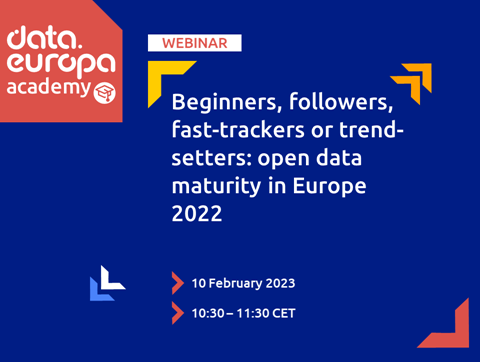
A webinar on the eighth Open Data Maturity (ODM) report will be organised by data.europa academy on 10 February 2023 at 10.30 to 11.30 CET. This would be the first of a two-part series of webinars to build a deeper understanding of the recent 2022 report among the participants. The ODM report is based on a self-assessment survey which facilitated in measuring the level of maturity among the EU countries against four dimensions: policy, impact, portal and quality. According to the score measured, the countries were then clustered into four groups, from the most mature to the least. This will
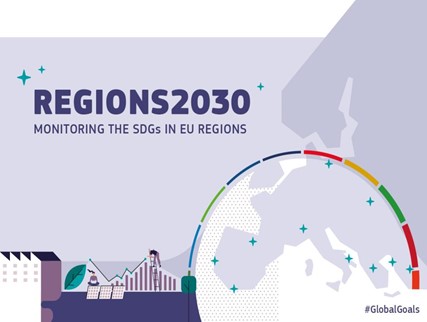
On 29 November 2022, the European Commission’s Joint Research Centre, in collaboration with the Directorate General for Regional and Urban Policy for Eurostat and with the support of the European Parliament and the European Committee of Regions launched the pilot project ‘ Monitoring the SDGs in the EU regions – Filling the data gaps – REGIONS2030 ’. It was proposed by MEP Petros Kokkalis in 2021 and approved by the European Commission in 2022. This project is a follow-up to the latest report on the implementation of the 2030 Agenda for Sustainable Development, in which the report incentivises

High dynamism and rapid innovation underpin the digital transformation of public administrations. As benefits of knowledge sharing are numerous, overcoming organisational silos by sharing best practices and lessons learned is crucial. Interoperable Europe, supported by Digital Europe Programme, is launching the second online edition of the ENDORSE (European Data Conference on Reference Data and Semantics) conference on 14 to 16 March 2023. Knowledge sharing in organisations is directly related to the production, dissemination and reuse of data and the creation, curation and sharing of
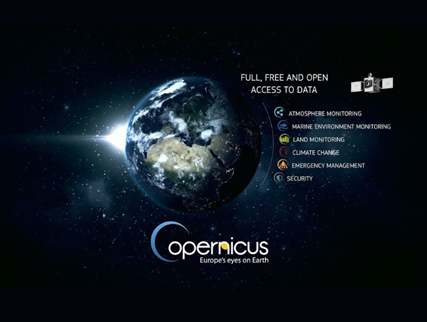
The European Union’s Earth Observation (EO) Programme ( Copernicus ) was launched to monitor our planet and its environment from space. Here, environment related climate risks not only have a major impact on people’s lives, but also on industries. One of the most affected industries is finance. If climate-related risks are not properly understood, they can lead to incorrect asset valuation, which can lead to capital misallocation and, in the worst-case scenario, global financial instability. In 2021, the EO data generated revenue of €145 million from clients in the finance and insurance
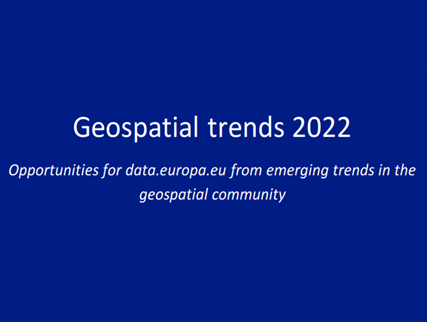
The annual Geospatial Trends 2022 report is now published on data.europa.eu. The aim of this report is to identify opportunities from emerging trends in the geospatial community and explore how data.europa.eu can benefit from the new ways in which geospatial datasets are offered and support the latest user expectations. The report concentrates on two trends of geospatial data that affect the European geospatial community: Modernising Infrastructure for Spatial Information in Europe (INSPIRE) and moving towards open data; and The role of geospatial information for Smart Cities. The report
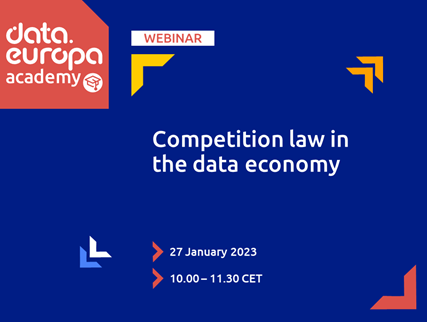
The proposed innovations of the Data Act will greatly impact data holders, data re-users and the legal landscape in Europe . The webinar titled ‘Competition law in the data economy : H ow will the evolving legal landscape affect data markets? ’ , scheduled for Friday 27 January 2023 at 10:00 to 11:30 CET, will give a detailed picture of this impact and also present the ongoing discussions and evolutions around competitive and anticompetitive data sharing practices . The webinar will focus on the current application of traditional competition law and the anticipated impact of the proposed Data
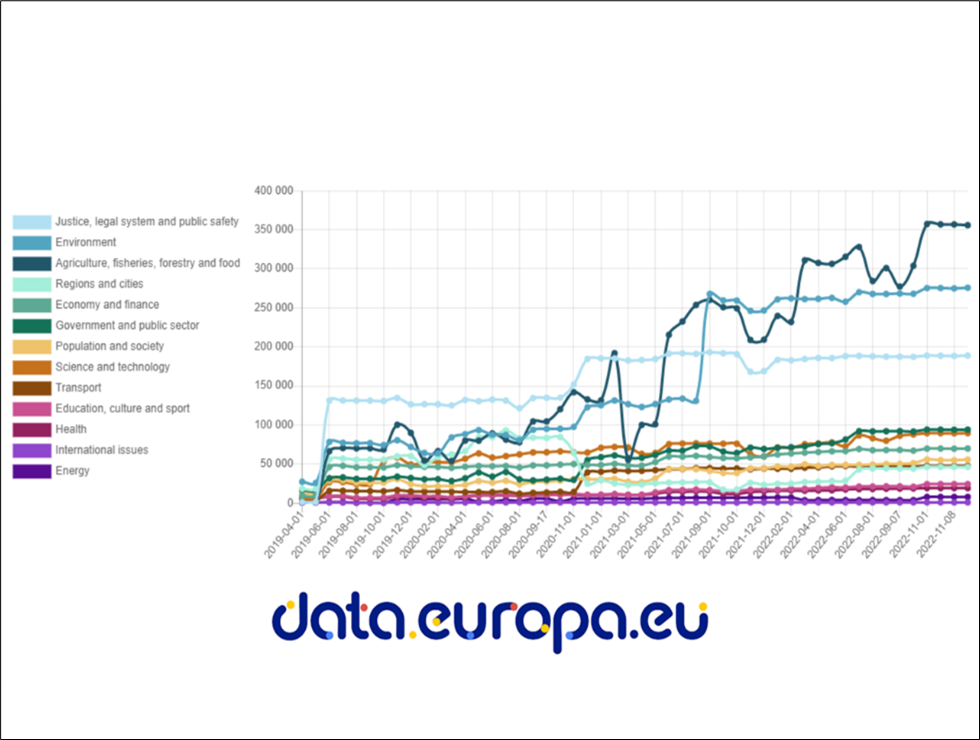
This news piece is the final article in the data.europa.eu recap and outlook series and will focus on the available open datasets on the portal and metadata quality. Data.europa.eu aims to be the single point of access for all open (meta)data across Europe. To this end, there was a steady increase of open datasets available on data.europa.eu throughout 2022. Between 1 January 2022 to 1 January 2023 , the total number of open datasets increased from 1 306 809 to 1 5 03 404 , with most of these datasets coming from the thematic areas : “Agriculture, fisheries, forestry and food” with 3 79 333
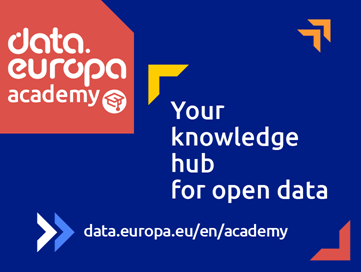
This is the second news piece in a series of three that will recap on the year 2022 and provide an outlook of what is to come in 2023. This release specifically focusses on the successes of the data.europa academy this year. In 2022, data.europa academy hosted 16 webinars on a broad range of topics. This included webinars in line with the main themes surrounding open data. The webinars on data and metadata quality , u nderstanding open data: legal openness , and measuring open data impact in Europe aligned with the technical, legal and impact themes respectively. The public webinars are
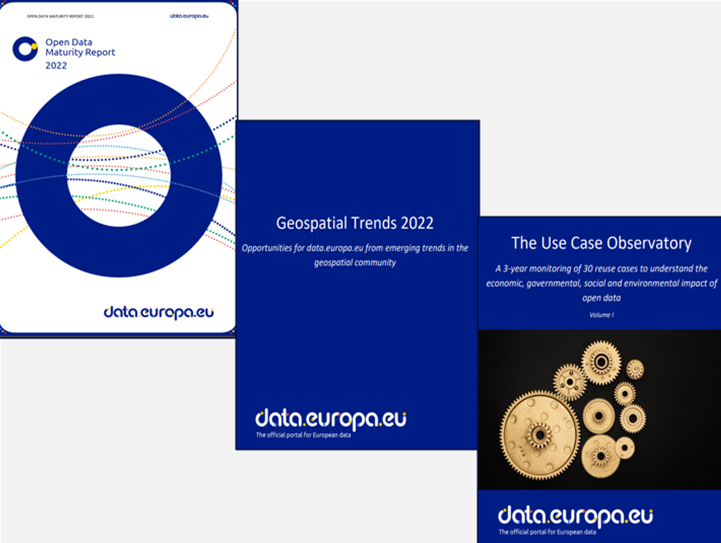
The data.europa.eu team wishes you all a happy new year! This news piece is the first of a series of three releases to recap and reflect on 2022 and to provide an outlook for 2023. This initial piece highlights a few publications and studies published in 2022 and gives a sneak-peak on what to expect in 2023. The publications and studies in 2022 covered several topics relating to open data. This includes technical topics (real-time and geospatial), legal topics (anti competitive law and the changing the legal environment ) and measuring the impact of open data. Examples of publications related
